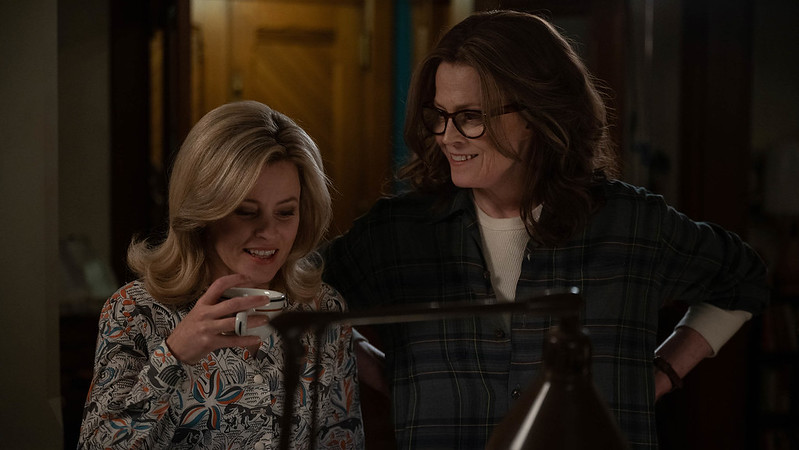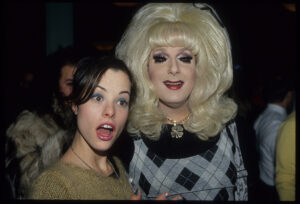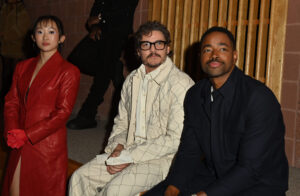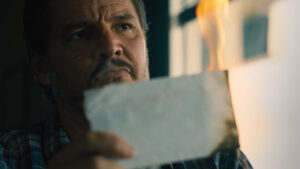Elizabeth Banks and Sigourney Weaver appear in Call Jane by Phyllis Nagy, in the Premieres section.
By Lucy Spicer
The history of reproductive rights is long and fraught, and today’s political climate assures that the future remains uncertain. Activists who witnessed the expansion of abortion rights in America after Roe v. Wade are now seeing those rights diminished and challenged.
Reproductive rights are a clear theme in the 2022 Sundance Film Festival program lineup. The topic is represented in multiple film categories, including U.S. and World Documentary Competition, Premieres, and Spotlight. Period films and documentaries emerge as a popular medium through which to address the theme, as the struggles of those who have come before continue to resonate today. The lineup also reveals the intersectional nature of the fight for reproductive rights, with films also addressing issues of race, religion, class, and wealth disparity.
Below, discover selections from the lineup that highlight the issue of reproductive rights. While these films don’t shy away from tragedy and injustice, they also showcase the power and joy present in perseverance, love, and community.
Aftershock (U.S. Documentary) — The U.S. has one of the highest maternal mortality rates among industrialized nations, and Black women make up a disproportionately large percentage of that population. Aftershock follows the partners and families of Shamony Gibson and Amber Rose Isaac, two Black women whose deaths from childbirth complications were entirely preventable. Paula Eiselt and Tonya Lewis Lee’s documentary juxtaposes accounts of the exploitative nature of gynecology in the U.S. with emotional, uplifting footage of activists, birth workers, and families fighting for institutional change.
Happening (Spotlight) — In 1963, Anne is a university student in France with a promising life ahead. That is, until she discovers she’s pregnant. Abortion is illegal in France, but Anne is unwilling to relinquish her future. Faced with indifferent responses from those around her, a desperate but determined Anne seeks to end her pregnancy by any means possible. Based on Annie Ernaux’s memoir of the same name, Happening is director Audrey Diwan’s second feature; it was awarded the Golden Lion at the 2021 Venice Film Festival.
Call Jane (Premieres) — Joy has a perfectly ordinary life as a housewife in Chicago in 1968, until she is diagnosed with a life-threatening condition as a result of her pregnancy. When an unsympathetic medical system denies her the help she needs, Joy turns to the “Janes,” a secret organization run by women who provide her with a safe alternative, and, unexpectedly, a new sense of purpose. Inspired by the true story of the Jane Collective, director Phyllis Nagy’s film features a nuanced performance by Elizabeth Banks as Jane, a woman who must navigate the social and political shifts of Chicago in the late ’60s and early ’70s.
The Janes (U.S. Documentary) — If you enjoy Call Jane, the natural next step is to watch Tia Lessin and Emma Pildes’ documentary The Janes, which features engrossing archival footage and interviews with founders and members of the underground organization. With unfaltering compassion, the “Janes” themselves recount the story of the secret network, from its small-scale beginnings to the police raid that led to the arrest of seven women.
Midwives (World Documentary) — Hla, a Buddhist, operates a makeshift clinic in a village in western Myanmar, where the Rohingya, a Muslim minority group, are persecuted and deprived of rights and resources. Nyo Nyo is a Muslim and an apprentice midwife studying under Hla. Despite the chaos and violence surrounding her, Nyo Nyo has ambitions to provide health care to her community. Snow Hnin Ei Hlaing’s debut feature-length documentary observes the complicated relationship between these two women who work together to help bring new life into a harsh environment.
Nothing Compares (World Documentary) — Sinéad O’Connor emerged from an abusive childhood with an undeniable talent and a strong refusal to conform to the societal expectations imposed upon her in predominantly Roman Catholic Ireland. Kathryn Ferguson’s debut feature documentary focuses on O’Connor’s life in the late 1980s and early 1990s, when the singer was building her career and establishing herself as a voice on issues such as abuse in the Roman Catholic Church, sexism, abortion rights, and racism. Archival footage and exclusive interviews paint a powerful portrait of a young artist determined to use her talent and platform to speak truth to power.




